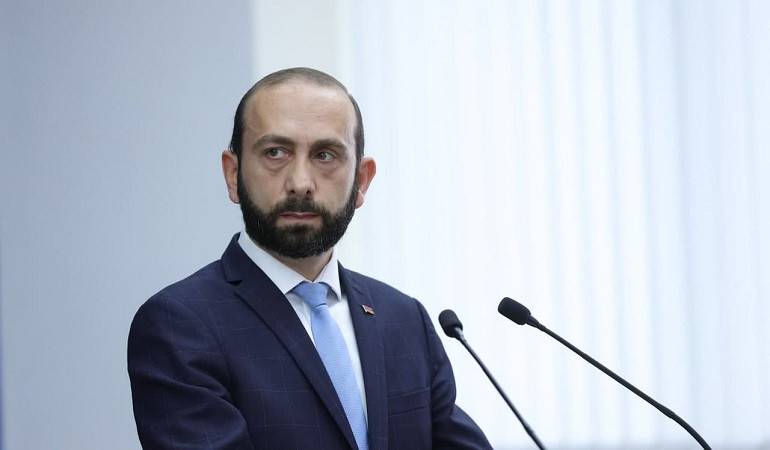The Interview of the Minister of Foreign Affairs of Armenia Ararat Mirzoyan to the Iranian “IRNA” news agency
05 October, 2021How does Armenia assess the current situation in the South Caucasus? How does it see the future of the region?
The aggression unleashed by Azerbaijan against Nagorno-Karabakh and its people last autumn, and its political, economic, and humanitarian consequences continue to have an impact on stability and security of the region.
Even though the Trilateral Statement of November 9 between Armenia, Russia and Azerbaijan halted hostilities, the situation remains fragile. This is due to Azerbaijan's failure to fulfill its obligations assumed by the above-mentioned statement, manipulation of some provisions, ongoing captivity of prisoners of war and civilian hostages, warmongering and expansionist rhetoric, aspirations towards the sovereign territories of Armenia and new threats of use of force.
The provocative behavior of the Azerbaijani side has an impact not only on Armenia but also on other states of the region, the demonstration of which we have faced with inadmissible steps undertaken regarding the transit traffic. Unfortunately, the encouragement of this behavior by third countries, as well as Armenophobic and warmongering rhetoric, brings additional obstacles for the stability of the region.
Nevertheless, Armenia continues its efforts aimed at establishing lasting stability in the region. Our Government’s program clearly states our readiness to have a contribution to the opening of an era of peaceful development for the region. I am confident that in case of expressing the relevant political will and undertaking constructive steps by the other states, all the necessary preconditions will be created.
What do you think of Iran's role in maintaining stability in the region?
Iran's role in reducing tensions and establishing stability in the region is obvious, a striking example of which is Iran's clear position on the inviolability of the borders of the Republic of Armenia. We believe that increasing Iran's participation will have a positive impact not only in the context of friendship and mutually beneficial partnership between our two countries, but also in the interests of a peaceful, secure and prosperous future of the region.
Iran's approach to the South Caucasus is based on the geopolitical and geographical importance of the region, but not on the ethnic-religious issues. How does Armenia assess this approach of Iran?
Armenia highly commends the bilateral good neighborly relations with Iran. The cooperation between Armenia and Iran can serve as a great example for countries guided by the agenda of peace, development and dialogue among civilizations.
The ancient civilizations, such as Armenia and Iran, are characterized by religious-national tolerance, mutual respect, trust, as well as reciprocal responsibility for the future.
What is Armenia's approach to the "3+3" initiative?
Armenia considers that any measure of regional cooperation can be effective if it meets the following requirements:
- The format must be complete and inclusive.
- It should be based on the developments of positive tendencies in relations among all the states involved. Otherwise, it may lead to the transfer of the existing issues in the bilateral relations of the states to the multilateral format, which, in its turn, may lead to the disruption of both multilateral format and the bilateral dialogue.
- How does Armenia assess the role of Russia in the recent developments?
Armenia and Russia are united by allied partnership, and with a wide range of mutual support and obligations.
Russia played a key role in cessation of hostilities against Nagorno-Karabakh which lasted 44 days, and now, Russian peacekeepers carry out their mission in Nagorno-Karabakh, helping to ensure physical security of the people of Artsakh and restore normal life. The works aimed at de-escalation in the region, addressing humanitarian issues, and unblocking the region's infrastructures are mediated by Russia. By the way, speaking about the infrastructures, it should be stated that neither in any document, nor in the context of opening the infrastructures, there is a question of providing a corridor through the territory of Armenia. This is clearly stated not only by the Armenian side, but also by the mediator - Russia.
At the same time, as a Co-Chair of the OSCE Minsk Group, Russia is involved in the process of a comprehensive settlement of the Nagorno-Karabakh conflict through its mediation mission.


